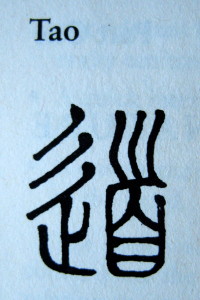
Living With Balance and Harmony…
Perhaps Jung’s favorite story was Richard Wilhelm’s “rainmaker” experience. While in China, Wilhelm—who translated the I Ching—visited a province that had suffered a long drought. Nothing that was done brought rain. Finally, an old Taoist man, known as the rainmaker, was brought in from a faraway province to break the spell. After sitting alone in a hut for three days, it began to rain. When Wilhelm inquired of the old man what he had done to make it rain, the old man said that when he’d arrived he was immediately infected by the disorder of the place and so he had to sit in seclusion until he restored himself to the Tao, to the order of nature. In so doing, the Tao of nature around him was likewise restored, and then it naturally rained.
Look what happens when a Catholic Pope sits in his own quiet meditation. This rainmaker emerges to proclaim that his church has been too “obsessed” with gays, abortion, and contraception. Let’s see how one person’s revelation contributes to realigning with the Tao.
The physicist David Bohm used the holographic metaphor to illustrate the true nature of quantum reality: every particle of the whole has within it the entire whole. Within every person is the entire universe. If we restore ourselves to the Tao, the universe restores itself to the Tao as well.
If we look outwardly, at the macrocosm, we can’t help but see a world of great imbalance. Traditionally, America has projected its shadow self elsewhere in the world and marshaled the troops to subdue the terrorist “out there.” With Syria, the world drew a line. Putin suggested that it’s time for America to get off its exceptionalist kick and face its own shadow. This week, once again, we experienced another mass shooting at home. Indeed, that “shadow” is very active in our homeland. It’s time for us, nationally, to own our shadow, just as, internationally, all are charged with facing the terrorist within themselves as well.
A Buddhist Master, Heng Ch’au,* states: “Other’s faults are just your own—Being one with everyone is called great compassion.”
The essence of true compassion without is acceptance of one’s own inner darkness. From the holographic perspective we are all the terrorist and the victim alike. From the Taoist wisdom, if but one of us can face the truth of our own shadow’s play in our lives then we are in a position to align ourselves with the Tao, with the truth, with the universe—and all is righted.

– Photo by Jan Ketchel
In the microcosm of the universe within each of us lies the disorder and imbalance that we see in our world without. What is needed is that we suspend judgment and accept the full truth of the attitudes and beliefs that dominate and control our lives.
What impulses within cry for life, yet are held in check by restrictive, fearful, judgmental attitudes? What deep needs are being disavowed, calling for a terrorist overthrow within to right the extreme imbalance of self? What regrets, resentments, bitternesses, hatreds and angers do we harbor in refusal to accept the truth of our own deepest secrets, deepest truths, and deepest disavowed selves? If we can face these mighty truths, fears and imbalances within, in full acceptance, then we arrive at the compassion to restore the Tao within, and vastly right the Tao without.
To project inward is to take responsibility for our holographic selves, to truly take responsibility for our interdependent wholeness.
Sign up for Project Inward!
From within the hologram,
Chuck
P. S.: After I had completed this blog, I posed the following question to the I Ching: How do we restore the Tao? I received the answer in Hexagram #30 Fire, with moving lines in the first, second and third places. The resulting future is Hexagram #4, Youthful Folly.
Fire attains duration by not overshooting its bounds; it burns in proportion to the wood that fuels it. Wood is yin, the darkness. The flame that illuminates is yang. Together yin and yang work in perfect harmony to produce the light of consciousness and the warmth of security. Such is the path to Tao that the I Ching proposes for now, for the individual, the nation, and the universe.

– Photo by Jan Ketchel
The reading goes on to highlight the first three lines of the hexagram, offering pragmatic counsel for morning, noon, and night that together complete the full cycle of a day, of a life, of an era.
The early morning is the time before ego arises, before world is formed. It is the time for communion with spirit. We awaken with dreams and impressions from our deeper selves. When the spark of consciousness awakens, arise. Ever so gently sit with the messages that came in the night; write them, contemplate them, sing them, draw them. These are the seeds of spirit for the day. Open a meaningful book, or any book, at random. The message you need will appear. Contemplate it. Engage in breathing, candle meditation, yoga, or any spiritual practice that suits your predilection. Take full advantage of the time before the demands of the day kick in. It’s the best time for direct spirit connection.
The midday sun is the height of power. The sun achieves this brilliance because it does not deviate from its path. It does not seek to go beyond itself, and it graciously begins its descent from the zenith. We are advised to align our ego selves with the true needs of our body and spirit selves. Perhaps this means not altering our body chemistry with another cup of coffee to forego our tiredness or push beyond our exhaustion and mental capacity to achieve some ego ideal not suited to the true needs of the self. The operative words here are modesty and balance, as we carry ourselves through the day.
As evening sets in the I Ching warns that we not attempt to extend the day with ecstatic exuberance, be it with substance or entertainment that deprive us of the replenishment needed to be freshly reborn the next day. The I Ching, as well, warns not to slip into melancholy and regret for tasks not accomplished or life not lived during the day. Time instead to prepare for sleep and its journeys, the journeys that hold the seeds of the morrow.

– Photo by Jan Ketchel
The accompanying future hexagram, Youthful Folly, is the right attitude for us to take forward as we go through our full cycle days and lives. Folly, in youth, is appropriate. It is innocence that approaches new life with curiosity and excitement. Its teacher is life itself, the reactions of the Tao to a being discovering new life without judgment. This is how we should always live our lives, in alignment with life itself. There will be lessons, hard lessons, as life moves in new directions, but there will also be new life as the Tao responds to youthful folly. Let the games begin!
* Buddhist quote from C. G. Jung’s Psychology of Religion And Synchronicity, p. 197
